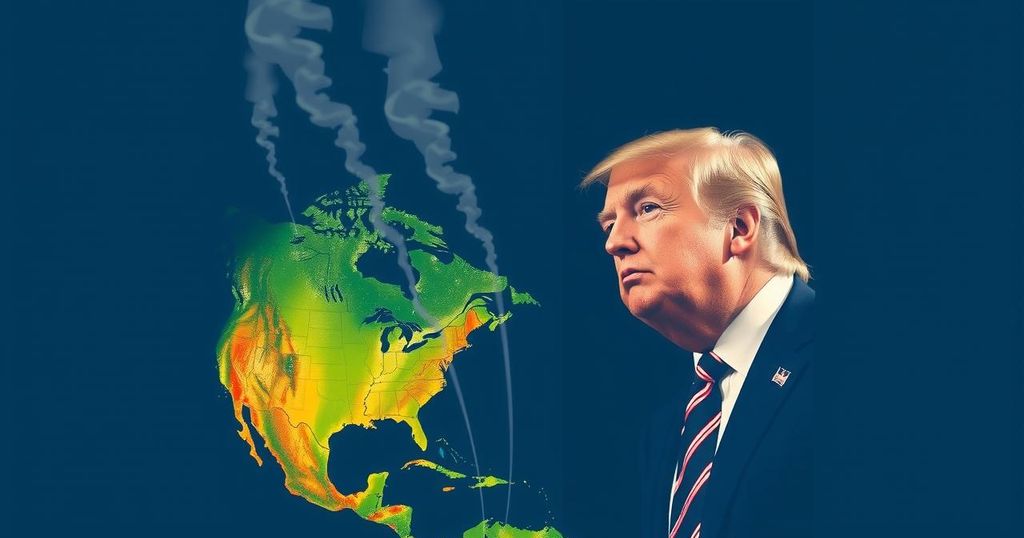The return of Donald Trump as a potential U.S. president raises serious concerns for global climate efforts as COP29 unfolds in Azerbaijan. Trump’s history of rejecting scientific findings and promoting fossil fuel production further complicates the already critical state of climate finance negotiations aimed at supporting developing nations.
Recently, as the 2024 United Nations Climate Change Conference (COP29) commences in Baku, Azerbaijan, the global focus is on securing substantial climate financing for developing nations. This concern intensifies with the return of Donald Trump as the potential next president of the United States. Trump, who famously withdrew the U.S. from the Paris Agreement and advocates for expanding fossil fuel production, poses a significant threat to global climate efforts. His anti-science stance fosters pessimism among researchers, mirroring sentiments expressed by scientists feeling disillusioned with the lack of meaningful governmental action on climate change. The call for a ‘research strike’ by some Australian and New Zealand scientists illustrates deep-rooted frustration over inadequate responses to the climate crisis. As extreme weather events continue to plague the planet, the urgency and complexity of the climate situation demand immediate attention and action from global leaders, posing an uncertain future for international climate initiatives.
The discourse surrounding climate change has become increasingly dire, particularly in the wake of extreme weather conditions that highlight the urgency of the issue. The IPCC has long provided warnings regarding the catastrophic impacts of greenhouse gas emissions, yet significant global action remains elusive. Many experts sense a growing despondence among the scientific community, especially in light of political leaders who dismiss established scientific consensus. The COP29 is a crucial platform for addressing these challenges, yet the election of leaders like Trump raises concerns about the commitment to global climate responsibility.
In conclusion, the return of Donald Trump to the political forefront poses serious implications for global climate initiatives, particularly as the COP29 seeks to establish critical funding for climate action. The scientific community’s frustration and anxiety are palpable as extreme weather events continue to intensify. The need for united global efforts and political will is more pressing than ever, demanding that leaders prioritize climate science and international agreements to safeguard the planet’s future.
Original Source: www.asahi.com






